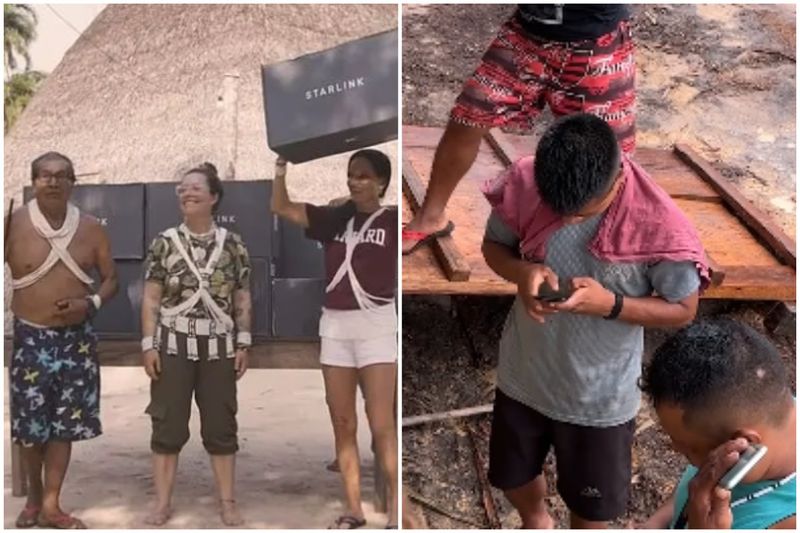The remote Marubo tribe in the Amazon, recently connected to the internet via Elon Musk’s Starlink service, has found itself deeply divided over the new technology. Starlink, which uses 6,000 low-orbit satellites to provide fast internet, was installed in the Marubo community along the Ituí River nine months ago, bringing both excitement and challenges.
Initially, the internet was welcomed. The service facilitated emergency communication, such as calling for help during potentially fatal snake bites, and provided educational resources and connections to family members living elsewhere. Young Marubo members, previously unaware of the world beyond their village, started dreaming of new possibilities, like traveling and pursuing careers in urban areas.
However, the elders soon noticed significant downsides. Tsainama Marubo highlighted how the internet has fostered laziness among the youth and influenced them to adopt behaviors from the outside world. The Marubo, a tribe that values chastity and frowns upon public displays of affection, was particularly disturbed by the proliferation of pornography. Alfredo Marubo expressed concerns about young men sharing explicit videos and exhibiting more aggressive sexual behavior, fearing they might imitate what they see online.
The pervasive internet use also disrupted traditional life. Enoque Marubo pointed out that the new routine negatively impacted essential activities like hunting, fishing, and farming, crucial for the tribe’s survival. Some tribe members, like TamaSay Marubo, still upheld traditions, but many youths preferred spending their afternoons on their phones. The internet addiction became so severe that the tribe’s leaders restricted access to two hours each morning, five hours each evening, and all day on Sunday to protect their culture and history, which is transmitted orally.
Parents, such as Kâipa Marubo, were worried about their children being influenced by violent video games and possibly imitating such behavior. The tribe also faced problems with internet scams due to a lack of digital literacy, and many young people engaged in risky conversations with strangers on social media.
Flora Dutra, a Brazilian activist who helped connect the Marubo to the Internet, argued that the tribe deserved access and dismissed fears about the Internet’s impact as exaggerated. She accused critics of ethnocentrism, suggesting that such concerns stem from an outsider’s belief that they know what’s best for the indigenous community.
Despite the mixed reactions, the internet’s introduction to the Marubo tribe highlights the complex interplay between technological advancement and the preservation of traditional cultures. While it offers undeniable benefits, the rapid changes it brings pose significant challenges to maintaining the tribe’s cultural integrity and way of life.




